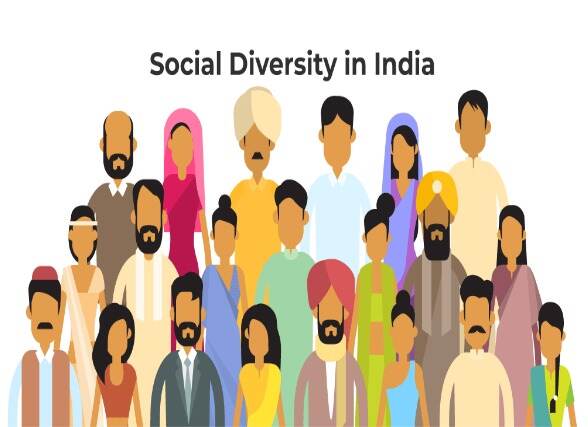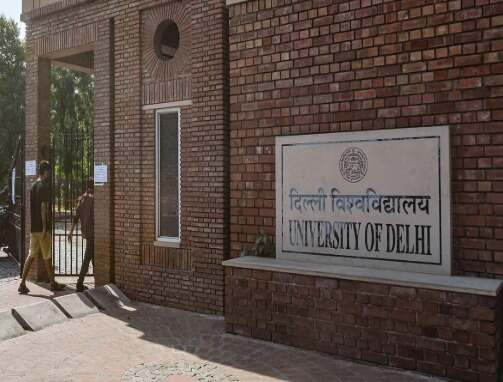In recent weeks, the hallowed halls of Delhi University have sparked debate, as students and scholars engaged in a profound discourse on the timeless teachings of the Bhagavad Gita. A symposium was organized by the university’s cultural committee, which brought together scholars from various disciplines, and became a melting pot of ideas, sparking discussions that transcended traditional boundaries.
The heart of the debate lies in whether the Bhagavad Gita should be perceived solely as a spiritual guide or if its wisdom extends to influencing the fabric of contemporary society. Some argue for a timeless spirituality in favour of the debate while others display their disapproval of the nuanced intersections between the Gita’s teachings and modern challenges.
The Bhagavad Gita
The Bhagavad Gita is a sacred Hindu scripture that is a part of the epic Mahabharata. It consists of 18 chapters with around 700 verses. The Gita addresses the moral and philosophical dilemmas faced by Arjuna on the battlefield and explores the concept of duty, righteousness, and the path to spiritual realization.
The Bhagavad Gita emphasises the importance of detached action, devotion to God, and the pursuit of knowledge for a meaningful and purposeful life. It is considered a guide to navigating life’s challenges and finding inner harmony.
Course structure and details
Ramanujan College of Delhi University initiated a “Compulsory” paid course on the teachings of Bhagavad Gita. The principal associates the course as being “highly relevant” while teachers questioned the need for a “religious course”. This is termed a “Refresher certificate course” and the participants have to pay Rs.950 to attend it, online or offline.
The course has been scheduled between December 22 and January 10 and is being held from 4:30 pm to 6:30 pm on all days of the week. The Principal of the college sent an email to the teaching staff underlining the importance and nature of the course. The email says all the newly recruited teaching staff in the last year must register and attend the programme in offline mode. While other teaching staff were given the option of attending the course either offline or online.
Also, all the non-teaching staff must attend the course in offline mode. The email mentions that the course will work as a stepping stone in proving that our education is aligned with the Indian Knowledge System i.e., Bhartiya Gyan Parampara. Education is not based on the sole knowledge of only one aspect, rather it covers all the spheres.
Feedback from the teachers
Teachers have constantly raised the question of “WHY?”. All the teaching staff has been showing a sense of dissatisfaction. Upon the nature of the course being declared compulsory and constant reminders sent through the mail, teachers are in a state of disappointment. According to them whoever wants to participate, will register and attend, so what is the need to send out emails? Also, The Indian Knowledge System is not just about Hinduism.
Delhi University has never had any such religious course. Participants must complete their exam duty and then attend the programme afterwards. The course has occupied the day of Christmas as well as Sundays. Further another teacher considers the situation as unfortunate. They even considered the email as a threat because it mentioned that the list of participants would be shared with the Chairman.
Academic enrichment or Coercion
The course on Bhagavad Gita at Delhi University has been related to the New Education Policy (NEP). The sparkling debate on this has extended beyond the sphere, with student groups organising panel discussions and workshops to engage a broader audience. Social media platforms also witnessed a surge in discussions, with hashtags related to the Bhagavad Gita, trending among students and intellectuals.
Many of the teachers say that they are attending the course just because it’s compulsory. This shows the lack of willingness and a forced phenomenon. Any course or workshop should be independent especially if it is meant to enhance academic knowledge. The obligatory essence of the programme gives out wrong messages in the sphere of academic freedom and terms of education.
Individuals seek out only those kinds of enriching courses that serve their interest area or aid in the field of study they are pursuing. But any programme that gives no choice to the person and appears as a forceful agenda wipes out the enthusiasm of the person to be a part of that course. In such cases, the true motto of the course is not served and the learning outcome is dissatisfactory.
Selective focus and cultural sensitivity
India is a secular country. It is known to be a land of diverse cultures. In the same way, Delhi University is one of the largest central university systems in the world for higher education where students from various religious backgrounds and around the world come to gain a plethora of academic knowledge and exposure. In such cases, the introduction of the Bhagavad Gita course appears as a culturally sensitive issue for the students as well.
What kind of reactions must have been experienced if the course subject matter had been changed from the Bhagavad Gita to the religious scriptures of any other religion? Sure it would have raised millions of religious-based judgemental comments. People who follow Hinduism often find great spiritual and moral value in the Bhagavad Gita. But what about those who share different cultural beliefs and practices?
The course offered by DU can lead to a feeling of exclusion experienced by members of different communities. Also, some sections of people will feel that their religious freedom is being compromised in the name of education. If the study is not approached with sensitivity and academic neutrality, there is a risk of misinterpreting the religious text, which could be offensive to followers of that faith.

Conclusion
The step taken by Delhi University for the mandated course of the Bhagavad Gita is surely a part of imparting knowledge. Still, it has led to diverse perspectives and impassioned discussions among students and scholars. For a country like India, when we take the case of such a prestigious academic institute like DU, any approach towards academic enrichment should be more inclusive and holistic.
Education is something that doesn’t create any sense of discrimination between gender, caste or other aspect of society. Educational institutions are seen as promoters of unity and harmony where cultural diversification is celebrated. Any step that can hurt the religious sentiments of any individual can lead to sparkling debate and unseen outcomes.
The effectiveness of a mandate to study a religious text depends on its inclusivity, academic rigour, respect for religious freedom, promotion of interfaith dialogue, global relevance, clear communication, and adaptability. A well-designed and thoughtfully implemented mandate has the potential to enrich educational experiences and foster a more inclusive and understanding academic environment.
-TANYA SHAH AND RIYA SINGH
MUST READ: UNVEILING THE SHADOWS: CONFRONTING DOMESTIC VIOLENCE


